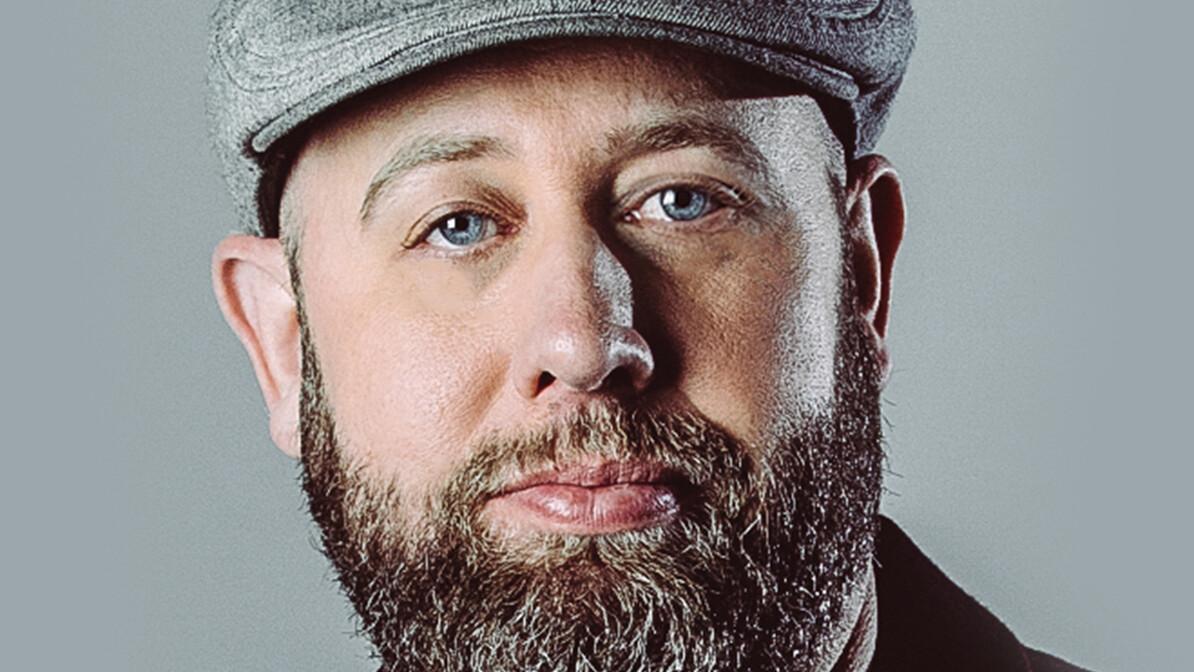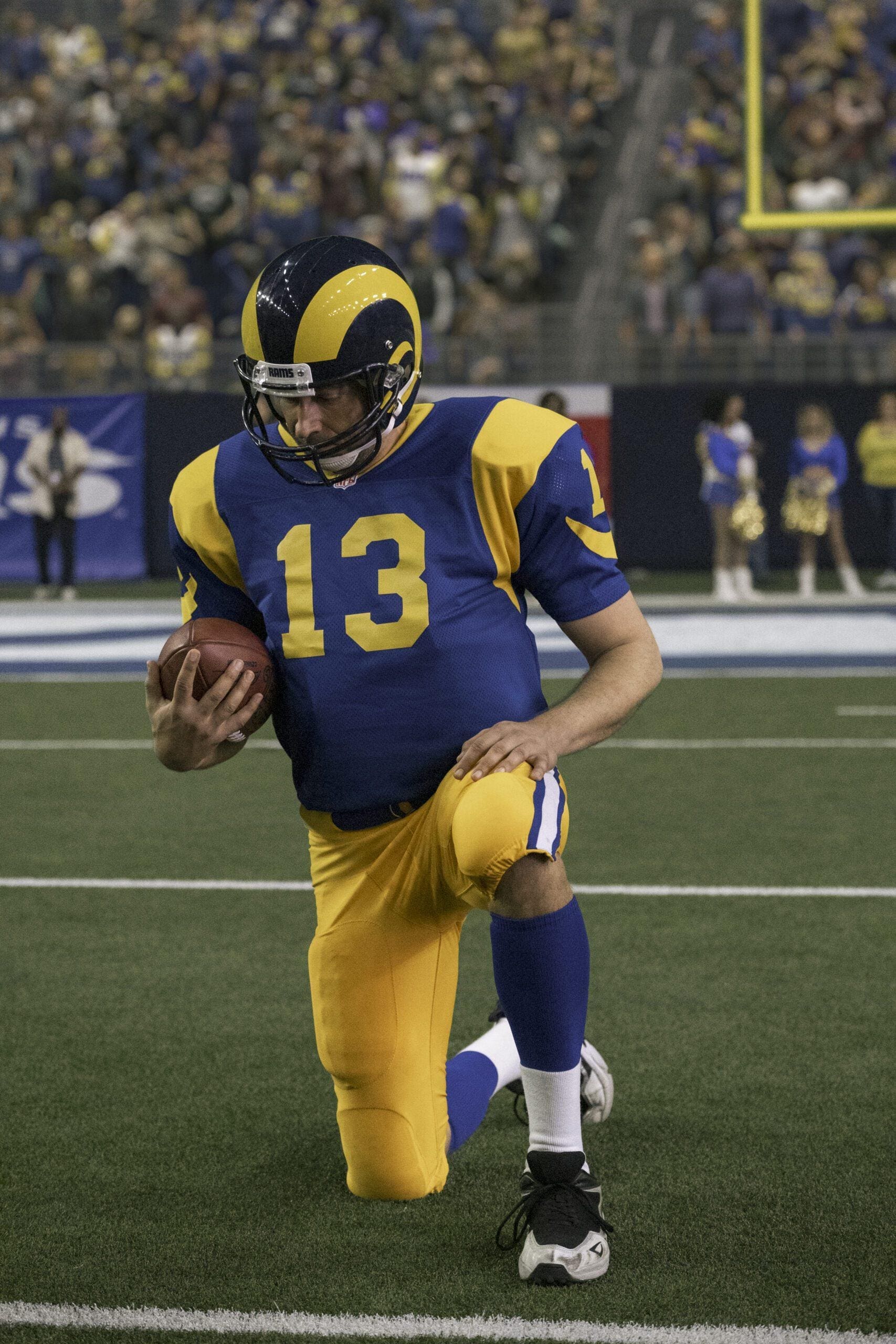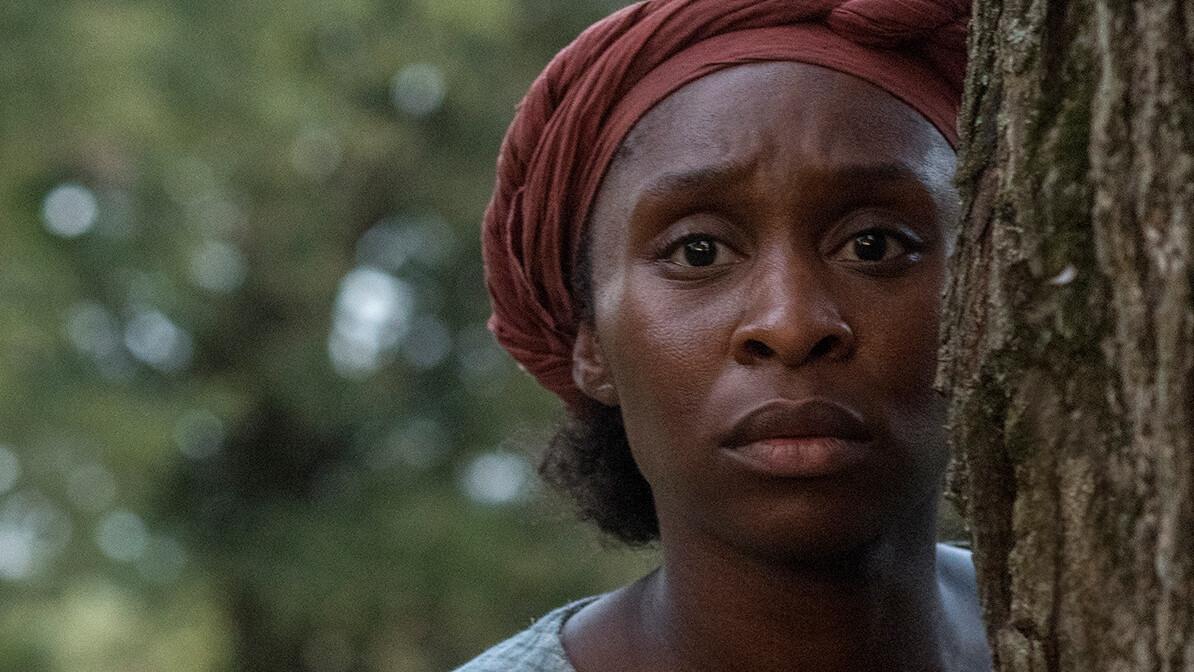- Home
- Entertainment
- Andrew Erwin: A Passion for Telling True Stories (Part 2)

Andrew Erwin: A Passion for Telling True Stories (Part 2)
John Farrell: In I Still Believe, Jeremy Camp said that the scene where Melissa flatlines was exactly what happened.
Andrew Erwin: It was pretty amazing. Watching Jeremy watch the scene, he had to stand up the first take and walk out. He walked out to compose himself because he’s like, “That’s chilling how accurate that is.”
There were moments like that with Bart. One of the cool moments we had with Bart on I Can Only Imagine was the moment when his dad gets angry and smashes the breakfast plate over his head. Bart was at the monitor when that happened, and it actually happened. But after John Michael, who plays Bart, storms out of the room, Dennis Quaid, who was playing his father Arthur, bends down and starts to pick up the pieces of the plate in shame and you could see he’s just beating himself up for being a monster. Jon and I let it go on for awhile before we yelled “cut.” When we said “cut,” I look over at Bart and he’s in tears at the monitor. I said, “What happened?” He said, “I knew the first part of that story because I was in the room, but that’s the first time I could see what my dad must’ve felt when I left the house.” He said, “It really helped me piece together emotionally what might’ve been going on inside of him.”
A lot of times we take that real-life moment and we expand upon it creatively and it kinda fills in the gaps. For the real-life person watching it, it helps them to have a different point of view to their own story.
JF: That’s awesome to think about. What’s been the toughest lesson you and your brother, or just you, have learned since beginning Kingdom Story Company? Or even prior to that, when you were making I Can Only Imagine and Woodlawn?
Andrew: I think there’s been lessons all along the way with each one. I think the biggest lessons for us happened prior to Imagine. With the movie Woodlawn, we were still the struggling artists trying to make it. I think the product came out beautifully on that story, but the process had become so painful that I think it humbled us and it really kind of brought us to a moment of not just what are we doing, but why are we doing it? I think it really alleviated this burden of being completely tied to your work to where it’s like I’m not my movies. I make movies, but my value isn’t in the fact that I make movies. When you wear that a lot more loosely and allow it to be a team effort rather than it being about ego, there’s something really beautiful that comes out of that.
I think that’s where we really embraced the idea of collaboration and team effort. I think that’s what led to Imagine, and ultimately it’s what led to Kingdom Story Company. It’s founded on this idea of best idea wins. It’s not about us being a big deal; it’s about us telling stories that we feel like are a big deal. That’s why Erwin is not in the title of Kingdom, but Story is. We are passionate about the stories, but it’s not about us. And I hope that that continues.
I think with success comes various degrees of challenge to make sure you keep that focus. But that’s at least the idea we’re striving for.
JF: How has the success of I Can Only Imagine changed your approach to movie-making and the films you create?
Andrew: I don’t think it’s changed the stories themselves. I think that we found stories that we love to tell. I think what it’s given is opportunity. The opportunities that have been opened up and the actors that have become available and the people that we get to collaborate with. Having a studio like Lionsgate willing to fund those endeavors has opened up the floodgates of opportunity for us to tell the stories on a bigger scale. To take on a story like Kurt Warner is exciting because it has double the budget of anything we’ve ever had. It’s got almost four times the budget of what I Can Only Imagine had. To have those resources to tell stories for the faith audience and beyond, I think Lionsgate is taking that audience very seriously. And that’s because of successes like Imagine and the others that have gone before us and opened that door to allow us to have a window of time for us to have a lot of resources. We’re desiring to use those wisely, but I think success opens up opportunity.
JF: I Still Believe was released into theaters the weekend the world essentially shut down due to the COVID-19 pandemic. Although it came out at the beginning of all that craziness, what has the movie’s response been like? I’m assuming it would have been vastly different if we didn’t have the pandemic.
Andrew: It was a rollercoaster for sure. It’s been a challenge of a season. When we came out, the opening weekend was when it was declared a pandemic and by the following Wednesday all the theaters were shut down. So, yeah, it greatly affected the box office. We still had a great opening weekend. Came within a million dollars of getting a first-place finish in the box office. Had our first-place Friday that we’ve ever had. That was definitely an appreciation of the loyalty of a fanbase that really loves stories like this. But then theaters shut down and there was no way for people to watch it.
Lionsgate had to shift their focus and figure out what to do. They figured out a strategy to shift very quickly to a video-on-demand release as a lot of other films have done since then. For us, that kind of broke our hearts because we make movies for the theaters, and Jon and I are very loyal to theaters. But in a situation where there were no theaters, we didn’t have a choice but to accept that that was the only option on the table. It did incredibly well on VOD, but it’s still difficult to replace a box office.
I don’t think the theater experience is going to go anywhere. Then we shifted to have the DVD release on the first of this month and it did incredibly well. Opening weekend we had the number one movie on DVD on Amazon and the number seven Blu-ray in the top 10. So, it was really a great release there too, but we’re still licking our wounds as a lot of people are in the industry, across the board, from a situation none of us could control. You just kind of have to adapt and understand it’s a whole new world.
American Underdog

JF: How has the pandemic affected your next project about Kurt Warner [since titled American Underdog: The Kurt Warner Story and scheduled to release on December 25, 2021]?
Andrew: We had to push. We were supposed to already be a week or two into production at this point in the filming. All projects were shut down until they got a handle on protocols that need to be in place to reopen. We’re eyeing early fall to restart that engine and be able to start filming. Lionsgate is still firmly behind that project. We’re in the middle of casting right now, and got exciting results in that department. But, we’ve had to push back a few months.
JF: I’m assuming it’s covering his days prior to getting into the NFL when he was working as a stocker at a grocery store.
Andrew: Yeah. It’s his story. It’s the ultimate underdog story. It’s about this kid who was searching for his value on the football field. He completely failed at his dream and had to work in a supermarket, and fell in love with a single mom and her special needs son, Zach. He found that his purpose was actually in fighting for this family, not being a superstar. As a result, it led to him having a path back to the NFL, and making it all the way from the supermarket to play in the Super Bowl. It covers that early part of his journey.
…
Read Part 1 of Andrew Erwin’s Interview: Andrew Erwin: A Passion for Telling True Stories (Part 1)
Interior Image Credit: Mike Kubiesy
Trending Now
Sign up today for your Inspiration Today Daily Newsletter
Supercharge your faith and ignite your spirit. Find hope in God’s word. Receive your Inspiration Today newsletter now!
John Farrell
John Farrell serves as the Digital Content Manager at Inspiration Ministries, where he oversees the planning, organization, and management of website content to support the ministry's global digital outreach. With a strong background in writing and editorial strategy, John ensures that the articles, devotionals, and discipleship resources on Inspiration.org are accurate, engaging, and aligned with the ministry's mission.
John has authored more than 1,000 articles, press releases, and features for Inspiration Ministries, NASCAR, Lionel, and Speed Digital. His versatility as a writer is also showcased in his 2012 book, The Official NASCAR Trivia Book: With 1,001 Facts and Questions to Test Your Racing Knowledge.
A graduate of Appalachian State University, John brings excellence and attention to detail to the digital experience at Inspiration Ministries. He lives in Concord, N.C., with his wife and two sons.
Related Articles
March 10, 2025
Finding Total Victory on the Road to Championship
I have been playing competitive golf for 55 years. Through the various stages of my life, my…
March 7, 2025
Average Joe Movie: SCOTUS, Praying Football Coach Backstory
When Coach Joe Kennedy knelt to pray at the 50-yard line after a high school football game, he had…
February 28, 2025
The Power of Story: A Muslim Journey to Hope
Storytelling is one of the oldest and most powerful ways to touch the human heart. Parents tell…
February 27, 2025
‘Harriet’ Movie: Courage, Freedom, Faith
Antebellum abolitionist Harriet Tubman had convictions and courage that helped free herself…
Next Steps To Strengthen Your Walk
Inspiration Today Newsletter
Supercharge your faith and ignite your spirit. Find hope in God’s word. Receive your Inspiration Today newsletter now!
Christian Articles
Find articles to strengthen your walk and grow your faith. We have a wide range of topics and authors for you.
Submit A Prayer Request
We are here for you. Simply click on the button below to reach us by form, email or phone. Together we will lift our hearts and voices with you in prayer.





